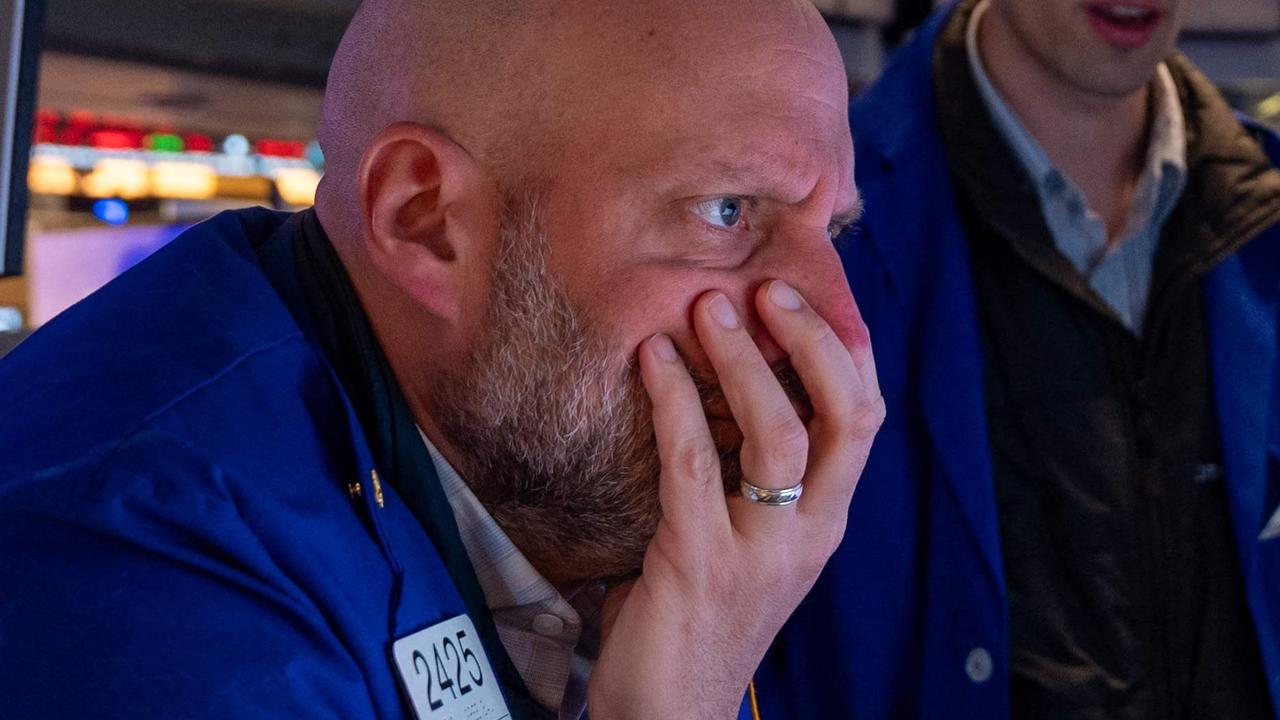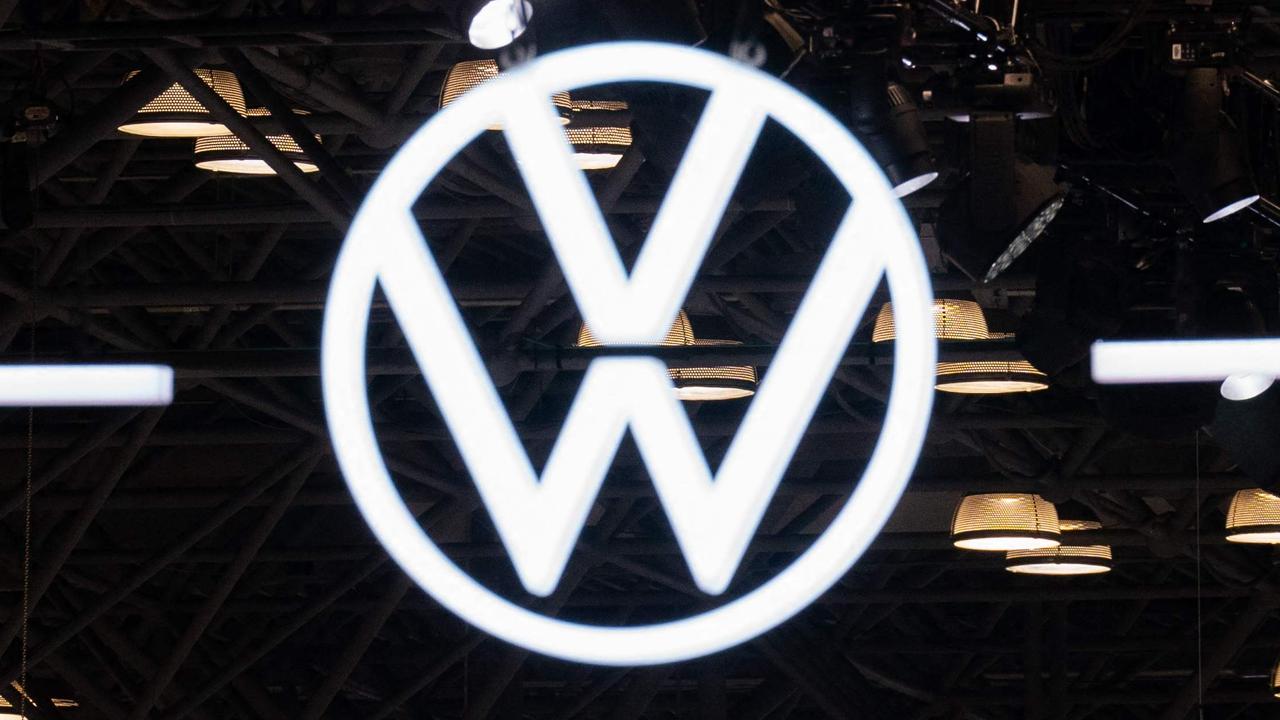Why the Greeks are putting on a brave front in the face of the crisis
AS Greece continues to battle hardship and confusion, the people caught in the crisis try their best to put on a brave face.
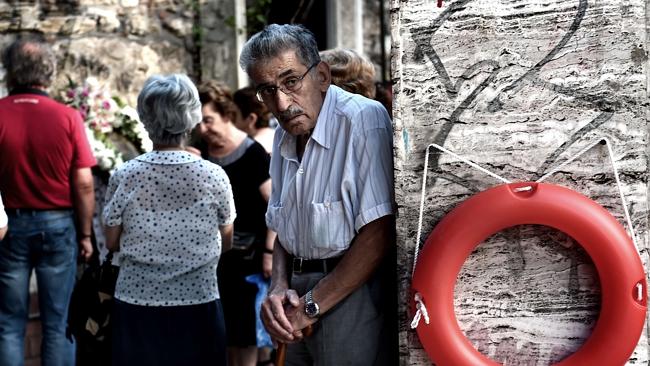
If you could give a name to the mood and attitude of Greeks today, it would be Bill Grigoratus.
The front-of-house manager of Mama’s Kitchen eatery in a small plaza in central Athens may be doing it tough, but you wouldn’t know it.
Business has slowed, his prices are being kept low despite the peak season, his suppliers will now accept only cash for goods and soon he will have to pay his workers straight from the till in a scenario being played out in most of the businesses in Greece — a nation that is teetering on financial collapse.
But many Greeks like Bill are still smiling.
HITTING HARD: Broke Greeks desperate for a feed
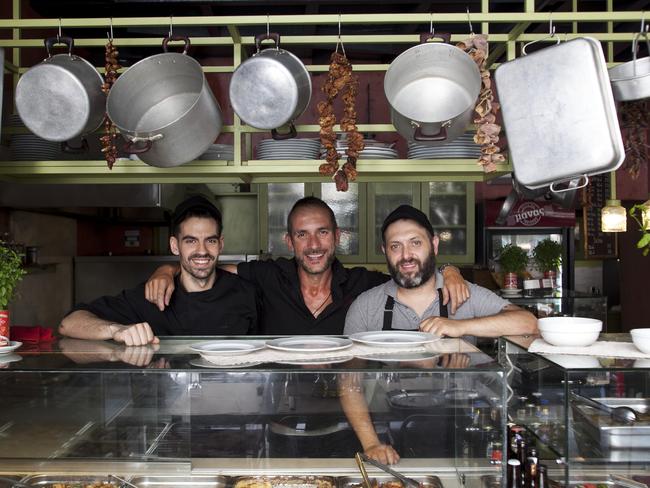
“We don’t have problem, but tomorrow we see,” he says of the crisis. “Things will change for the better tomorrow. If you think positive and everything change for the better. Of course, of course my friend, it’s always better tomorrow. We stay and think positive that it’s always better tomorrow.”
Tomorrow is what the country has been looking to for five years now, with every day seemingly throwing up more confusion and uncertainty as politicians and the financial institutions grapple with the crisis.
Many Athenians describe the past week as the most trying in living memory — a roller coaster of emotions that people wrongly thought was at the end with the referendum and the resounding no to more austerity, only to find it was simply the top of the ride with the big dip to come.
“I just can’t take it anymore,” says Socrates as he stands outside his souvenir shop in the Plaka old quarter of the capital. “Everybody just wants it to end one way or the other way, instead everyday we don’t know what will happen. But it’s okay, we are healthy, we are not going to starve, no-one starves in Greece because everyone looks after each other here.”
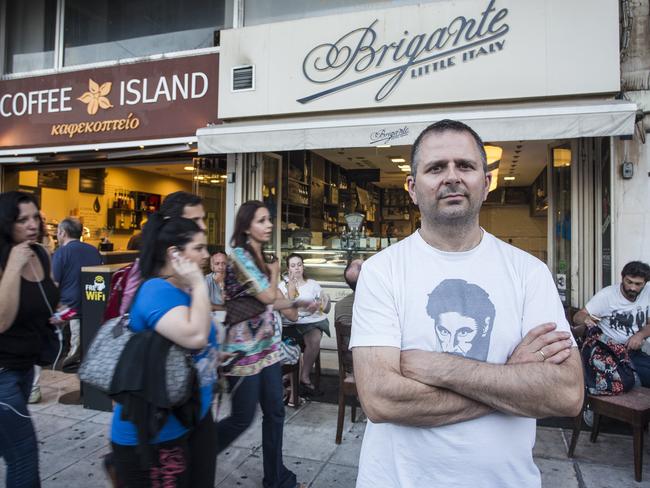
At Brigante Little Italy cafe, chef Constantine Garifallou in on his hands and knees unscrewing a grilled vent from a cafe-front refrigeration unit, keeping his sweet and savoury treats cool.
“Yes I am the chef but these days you also have to be prepared to be the electrician, handyman, plumber, cleaner, everything, everything I tell you, you have to do everything yourself now you cant afford to get people in,” he says. “This is where we are at. Most places are doing the same to make savings to get through this period.”
Outside his Agias Paraskevis church in central Athens, Father Simeon says he sees the hardship first-hand etched on the faces of his congregation.
He says for the past few years the country has been doing it tough and he can’t believe many were content to vote ‘No’ in the referendum to further aid in exchange for austerity.
“They destroy themselves by doing this,” he says of Prime Minister Alesix Tsipras and his Syriza government.
“They are not thinking about Greece, they are thinking about their political party like all the political parties in Greece. I’m pro-European, because Europe has provided a lot of aid, it’s the Greeks who have badly spent and everyone is responsible for that.”
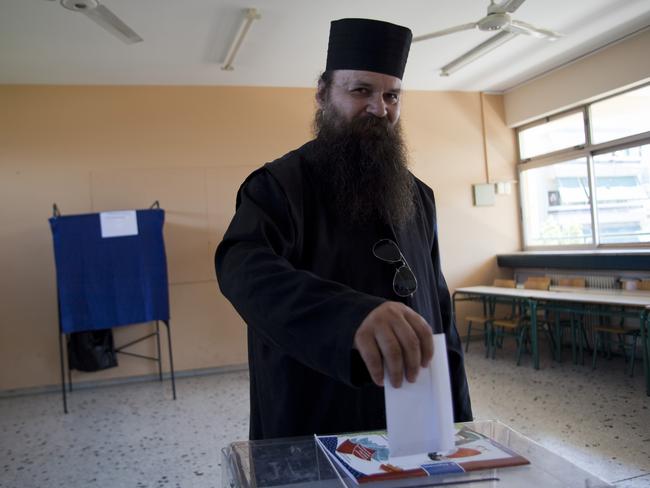
He says he has not received anything personally from the European Union, but knows they want to help. Those who do not believe that, he says, have ulterior motives.
“If there wasn’t a referendum we would have been out of the EU already,” he says. “There is an underlining thought that some are trying to get Greece out of the European Union and it’s not that easy.
“It was a trial and error with the ATMs and putting caps on withdrawals to see what would happen and the politicians are quite open about that.”
On his flock, he says, they just hope for some resolution.
“There has been big problems among my congregation,” he says. “From the capping, everyone is a bit more distressed, they are living tight. They are just people who aren’t even bothering getting their money (out of ATMs) anymore, they’ve had enough. People don’t like the fact they have been lied to, but the lies are in the open now so there are no more lies. The government contradicts itself on a daily basis now too, they go back and forth and nobody knows what is going on.”
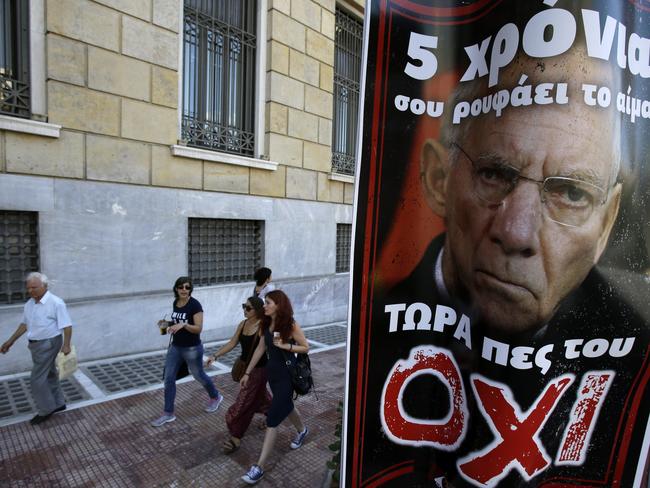
Father Simeon says it is ironic the government has limited business on the internet and making overseas payments and allowed it to be used to degrade the Germans and other Europeans whom some people blame for all the problems.
Evidence of German-bashing is everywhere in Athens, from graffiti to shopfront art — including one large painting that depicts EU leaders dressed as the Taliban or as devils. Along the central Andrea Syngrou Avenue, ironically named after a 19th century foreign-born Greek banker, telegraph and lamp posts carry posters featuring German Finance Minister Wolfgang Schaeuble with the slogan” “For five years he’s been sucking your blood. Tell him NO now”. It is a dated referendum poster but none are coming down anytime soon. Indeed they seem to appear more frequently.
Greeks may like to think about tomorrow and smile today, after all they will tell you, it is always someone else’s fault, like Schaeuble or his boss Chancellor Angela Merkel.
“They got us into this, they have to get us out,” Socrates says. “There can’t be a Europe without Greece so they will sort it out.”
charles.miranda@news.com.au


